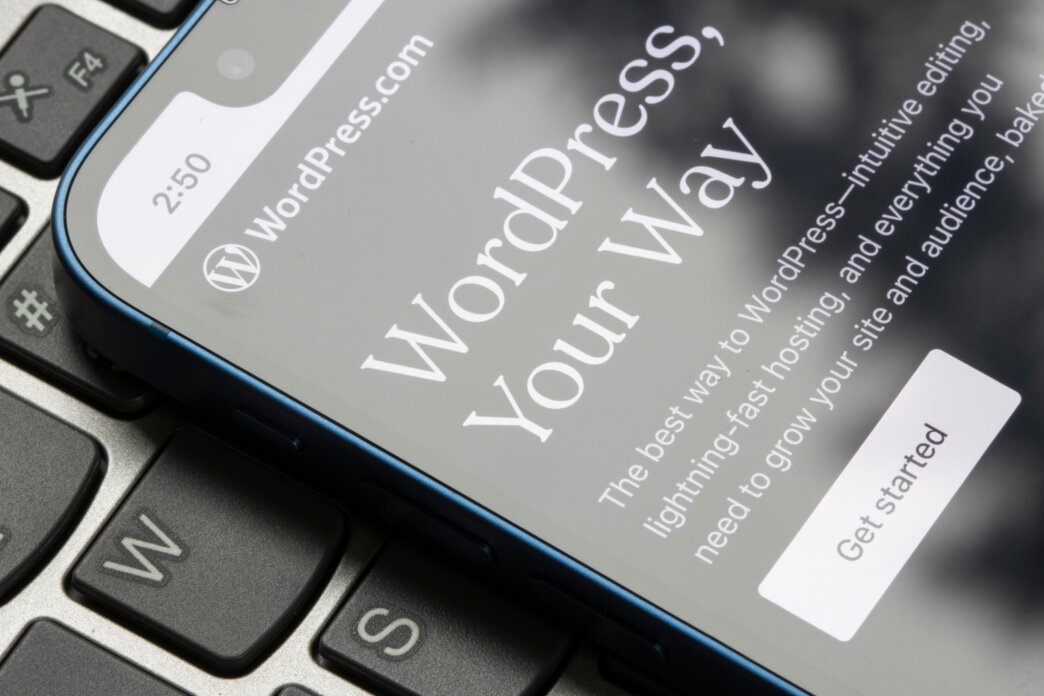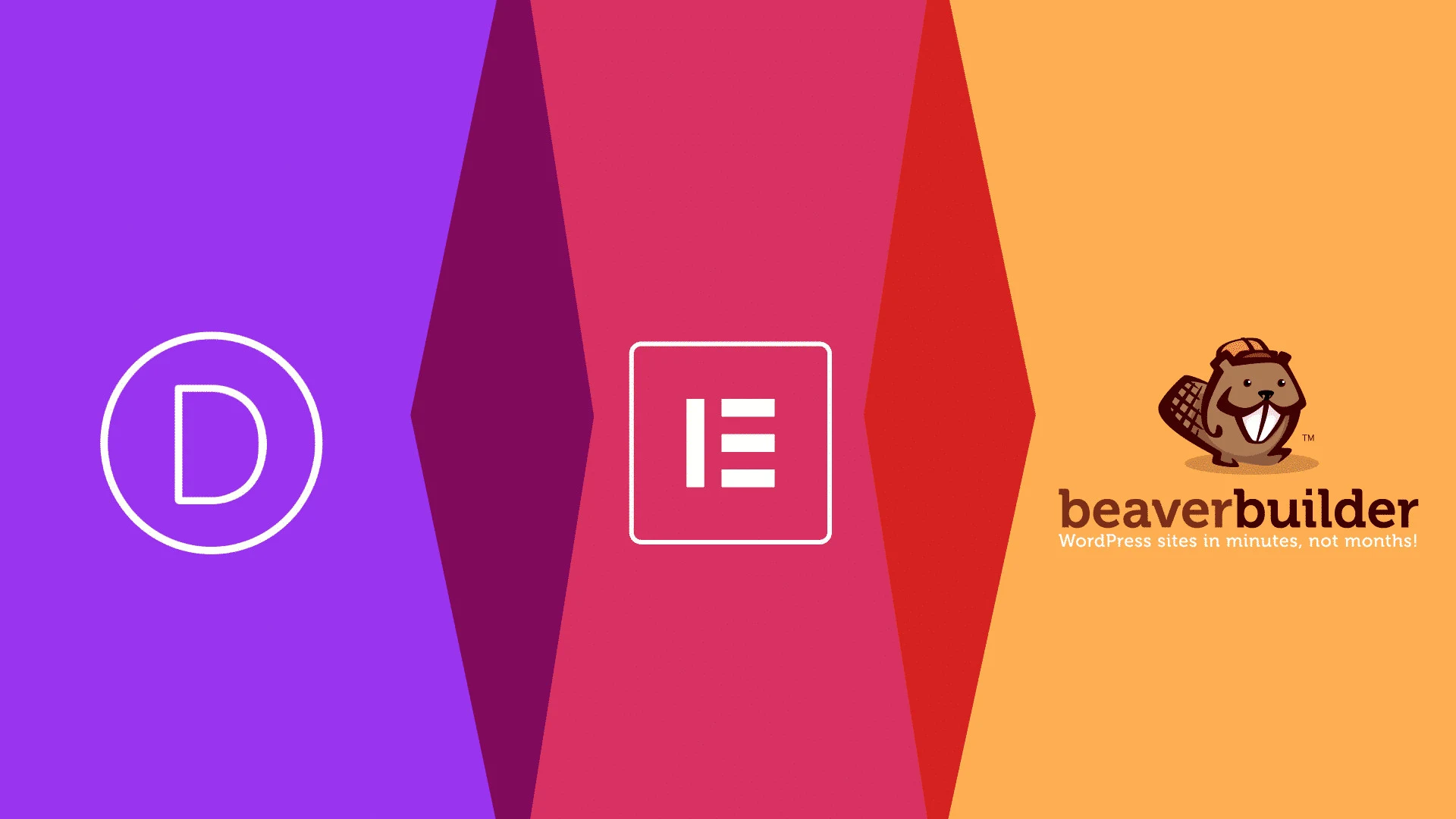Page builders in WordPress offer a user-friendly, drag-and-drop interface that empowers even non-technical users to create stunning websites with ease. However, their convenience can come at a cost, potentially leading to slower site performance and less clean code compared to custom development. Learn more about page builders down below.

Let’s dive into the pros and cons of using page builders in WordPress development. Page builders are powerful tools that are designed to simplify the design and customization process by allowing users to drag, drop, and edit content with ease.
As the popularity of page builders continues to surge, so does the debate over their impact on WordPress development. Page builders promise a user-friendly approach to web design, catering not only to seasoned developers but also to those who lack coding expertise. They boast features that can streamline workflows, enhance creativity, and reduce development time.
However, they are not without their drawbacks. From potential performance issues to limitations in flexibility, page builders come with their own set of challenges. Understanding the pros and cons of using page builders will help you make informed decisions and optimize your WordPress experience.
What are WordPress Page Builders?
WordPress page builders are user-friendly tools designed to simplify the process of creating and customizing website pages without requiring advanced coding skills. These plugins or integrated features offer a drag-and-drop interface, allowing users to easily arrange content elements like text, images, videos, and widgets on their site.
They enhance the flexibility and creativity of WordPress websites, making them accessible for both beginners and experienced developers to build visually appealing and functional sites.

Types of WordPress Page Builders
Popular page builders such as Elementor, Divi, and Beaver Builder provide a wide array of pre-designed templates and design modules. Thus, enabling users to achieve professional-looking layouts and designs quickly.
- Elementor is a popular drag-and-drop page builder plugin for WordPress. Users can build and edit pages in real time. Furthermore, it comes with widgets and elements such as text boxes, images, videos, buttons, forms, and more. It is suitable for non-developers and allows for various third-party app integrations.
- Divi builder is another popular page-building plugin. It also offers users drag-and-drop functionalities to build and edit pages. It provides both a frontend visual builder and a backend wireframe view, catering to different design preferences. Divi Builder includes a library of pre-made layouts and templates, which users can import and customize.
- Beaver Builder is a versatile and powerful page builder plugin for WordPress, suitable for a wide range of users from beginners to advanced developers. It simplifies the process of creating custom page layouts and designs. Thus making it a popular choice among WordPress users looking for an easy-to-use, flexible, and reliable page builder solution.
Pros of Using Page Builders in WordPress
Let’s go over some of the benefits of using a page builder for your WordPress website.
User-Friendly Interface
One of the significant benefits of using a WordPress builder is its user-friendly interface, which makes website creation accessible to a wide range of users, from beginners to experienced developers.
Most page builders in the WordPress ecosystem are designed with intuitive drag-and-drop functionality. Thus, allowing users to easily add, move, and customize elements on their website without needing to write any code.
This ease of use sets WordPress apart from many other website builder platforms. Therefore, ensuring that users can quickly create professional-looking websites with minimal effort. The seamless, visual editing experience provided by these page builders empowers users to focus on their creative vision and content, rather than getting bogged down by technical complexities.

Speed and Efficiency
Using a WordPress builder significantly enhances speed and efficiency in website development. These tools offer intuitive drag-and-drop interfaces, pre-designed templates, and customizable elements, allowing users to create professional websites without extensive coding knowledge. This reduces the time needed for design and development, enabling quicker project turnarounds.
Moreover, WordPress builders streamline workflows by integrating various features like:
- SEO tools,
- responsive design options,
- and e-commerce capabilities
into a single platform, minimizing the need for additional plugins or external resources. As a result, users can focus more on content and user experience, achieving their website goals faster and more efficiently.
Pre-Designed Templates
Using pre-designed templates in WordPress page builders offers numerous advantages for both novice and experienced users. These templates provide a solid foundation for building attractive, professional-looking websites without requiring extensive design skills or technical knowledge.
By leveraging pre-designed templates, users can quickly and easily create a cohesive and visually appealing website, significantly reducing the time and effort typically involved in the design process. Additionally, these templates are often optimized for responsiveness and performance, ensuring a better user experience across different devices.
They also serve as a valuable learning tool, allowing users to understand effective design principles and customize their sites with confidence. Overall, pre-designed templates streamline the website creation process, making it more accessible and efficient.

Cost-Effectiveness
For some website owners it can be more cost effective to use a premium page builder rather than hiring a WordPress developer to add new features. Premium page builders often come with a range of built-in functionalities and customizable options that allow users to add advanced features, design elements, and enhancements without needing specialized coding skills.
This can be particularly beneficial for those with tight budgets or smaller-scale projects, as page builders provide a one-time or subscription fee. This is generally lower than the cost of hiring a developer for each new feature or design change.
Additionally, the user-friendly interfaces and pre-designed templates available in premium page builders enable owners to make modifications and updates themselves. Thus, further reducing ongoing expenses and reliance on external services.
This approach not only streamlines the development process but also empowers users to manage and adapt their sites independently, offering both financial and operational advantages.
Responsive Design
A visual composer offers the ability to create custom layouts that are responsive on all screen sizes and devices. Your website will easily adjust to different screen sizes, from smartphones and tablets to desktops and laptops.
With responsive design capabilities, page builders simplify the process of creating a consistent and optimized user experience across various devices without requiring complex coding. They often provide real-time previews of how a site will look on different screens, enabling users to make necessary adjustments and ensure that their content is presented effectively everywhere.
This ease of achieving responsive design not only enhances the website’s accessibility but also improves its performance and user engagement.
Cons of Using Page Builders in WordPress
Let’s go over some of the cons of using a page builder for your WordPress websites.

Performance Issues
One of the pros and cons of using page builders is your WordPress website can have performance issues. This is a result of additional code and scripts these tools often generate. This extra code can significantly impact page speed, causing longer load times and a sluggish user experience.
Slow page speed is a critical factor for search engines when ranking websites, as they prioritize fast-loading sites to provide a better user experience. Consequently, websites that rely heavily on page builders may suffer in search engine rankings, leading to reduced visibility and lower organic traffic.
Therefore, optimizing performance and minimizing the use of excessive plugins and scripts is essential for maintaining a competitive edge in search engine results.
Limited Customization and Flexibility
Many page builders available for WordPress offer convenience and ease of use but often come with significant limitations in customization and flexibility. When users opt to use a page builder, they might find that the pre-built modules, templates, and design elements restrict their ability to fully tailor their site to their specific needs and preferences.
This can be particularly problematic when trying to integrate unique design elements or advanced functionalities that a standard WordPress theme might more easily accommodate. Additionally, many page builders can introduce bloated code and slow down website performance, further complicating the customization process.
As a result, despite the initial ease of use and rapid deployment, many page builders can ultimately hinder the creation of highly customized and flexible websites. Therefore, forcing users to compromise on their original vision.
For developers and site owners who prioritize complete control over design and functionality, relying on a page builder can prove to be a frustrating and limiting experience. This further underscores the importance of carefully evaluating the trade-offs before deciding to use one.
Do you want to check the health of your website?

SEO concerns
Another potential con of using a page builder for your WordPress site is SEO concerns. While these tools allow you to create your own website with just a few clicks, the ease of use often comes at the expense of search engine optimization.
Many page builders generate bloated and inefficient code, which can slow down your entire website. This can negatively impact your site’s loading speed, a critical factor that search engines consider when ranking pages.
Moreover, page builders sometimes use non-standard HTML structures, making it harder for search engines to properly index your content. This issue can be particularly problematic for landing pages, which are often key to your marketing and conversion strategies.
If these pages are not properly optimized, they may not perform well in search results, ultimately affecting your site’s visibility and traffic.

Learning Curve and Dependence
When using website builders you often have a learning curve that you need to go through before you are fully comfortable using it. These tools often come with a myriad of features and customization options, which, while powerful, can be overwhelming for beginners. Learning how to effectively utilize templates, integrate plugins, and customize design elements requires time and practice.
Also, another quam when using a page builder is you are dependent on it. It’s hard to switch to another one or make changes without it impacting your entire site. This dependency can result in a lock-in effect, where users find themselves constrained by the limitations of the original builder. Thus, making it difficult to migrate their content or redesign their site without facing significant obstacles or potential data loss.
Thus, while website builders offer convenience and ease of use, they also necessitate a commitment to their specific ecosystem, which can limit flexibility and adaptability in the long run.
Compatibility and Updates
Using a WordPress page builder can cause compatibility issues and you need to make sure that you are constantly updating it. These builders often introduce additional code and functionalities that may conflict with other elements of your site, leading to glitches or errors. To mitigate these problems, it is crucial to consistently update your page builder to the latest version, ensuring that any bugs or vulnerabilities are addressed.
However, it is important to note that maintaining a smooth-running website involves more than just updating the page builder. You will need to update your WordPress core, WordPress plugins, and themes anyway. Neglecting to keep all components up to date can result in compatibility issues, security risks, and degraded site performance.
Therefore, while the responsibility of managing updates may seem daunting, it is a necessary aspect of running a reliable and efficient WordPress site. By staying proactive with updates, you can minimize potential conflicts and ensure your website operates seamlessly.

When to Use Page Builders
After considering the pros and cons of using page builders, let’s go over some of the times that you should consider using page builders:
- Suppose you lack coding and technical knowledge. This is for individuals or small business owners who need a website but don’t have the technical skills to build one from scratch.
- When you need to get a website up and running quickly, page builders can significantly reduce the time required to design and launch.
- If hiring a professional developer or designer is outside your budget, using a page builder can be a more affordable alternative.
- Page builders often come with a wide variety of templates that can be customized to meet specific needs.
Using a page builder can be a practical choice for many types of projects, especially when speed, cost, and ease of use are critical factors. However, for complex, highly customized, or large-scale projects, it might still be beneficial to engage professional developers and designers.
Alternatives to WordPress Page Builder
After reviewing the pros and cons of using page builders, you may decide to look for alternatives. When considering alternatives to WordPress page builders for WordPress development, developers can turn to several powerful tools and methodologies that offer greater control, performance, and customization.
Custom theme development using PHP, HTML, CSS, and JavaScript remains a robust option, allowing for the creation of highly tailored websites without the bloat often associated with page builders. Advanced Custom Fields (ACF) is another popular choice, providing developers with a user-friendly way to create custom meta boxes and fields, making content management more intuitive for end users.
Gutenberg, WordPress’s native block editor, has evolved significantly and can be extended with custom blocks to provide a builder-like experience while maintaining better integration with WordPress core. For those seeking a more component-based approach, integrating modern JavaScript frameworks like React or Vue.js can be beneficial, especially when using the REST API or GraphQL to manage dynamic content. These alternatives not only enhance website performance and flexibility but also offer a more streamlined.

TL;DR: Recap of the pros and cons of using WordPress page builders
Page builders in WordPress are tools that allow users to create, edit, and customize websites without needing extensive coding knowledge. They provide a visual interface, often with drag-and-drop functionality, making web design more accessible to a broader audience. Let’s review the pros and cons of using page builders in a snapshot:
Pros of Using Page Builders:
- User-Friendly Interface: Easy to use with little to no coding skills required.
- Speed and Efficiency: Quick setup and development time.
- Pre-Designed Templates: Access to a variety of templates to jumpstart your design process.
- Cost-Effectiveness: Often more affordable than hiring a professional developer.
- Responsive Design: Most page builders ensure your site looks great on all devices.
Cons of Using WP Page Builders:
- Performance Issues: This can slow down your site due to added bloat and unnecessary code.
- Limited Customization and Flexibility: It may not provide the exact customization options you need.
- SEO Concerns: Some builders can negatively impact your site’s SEO.
- Learning Curve and Dependence: While easier than coding, they still require learning, and you may become reliant on them.
- Compatibility and Updates: Potential issues with WordPress updates and plugin compatibility.
When to use page builders? They are ideal for small to medium-sized websites where budget and time are limited, and the need for extensive customization is minimal. For larger, more complex projects that require tailored functionality and high performance, professional WordPress development is a better choice.
Ready to elevate your website to the next level? Drop us a line to take full advantage of our expert WordPress development services and see how we can help you achieve a stunning, high-performing site tailored to your needs!
Comments